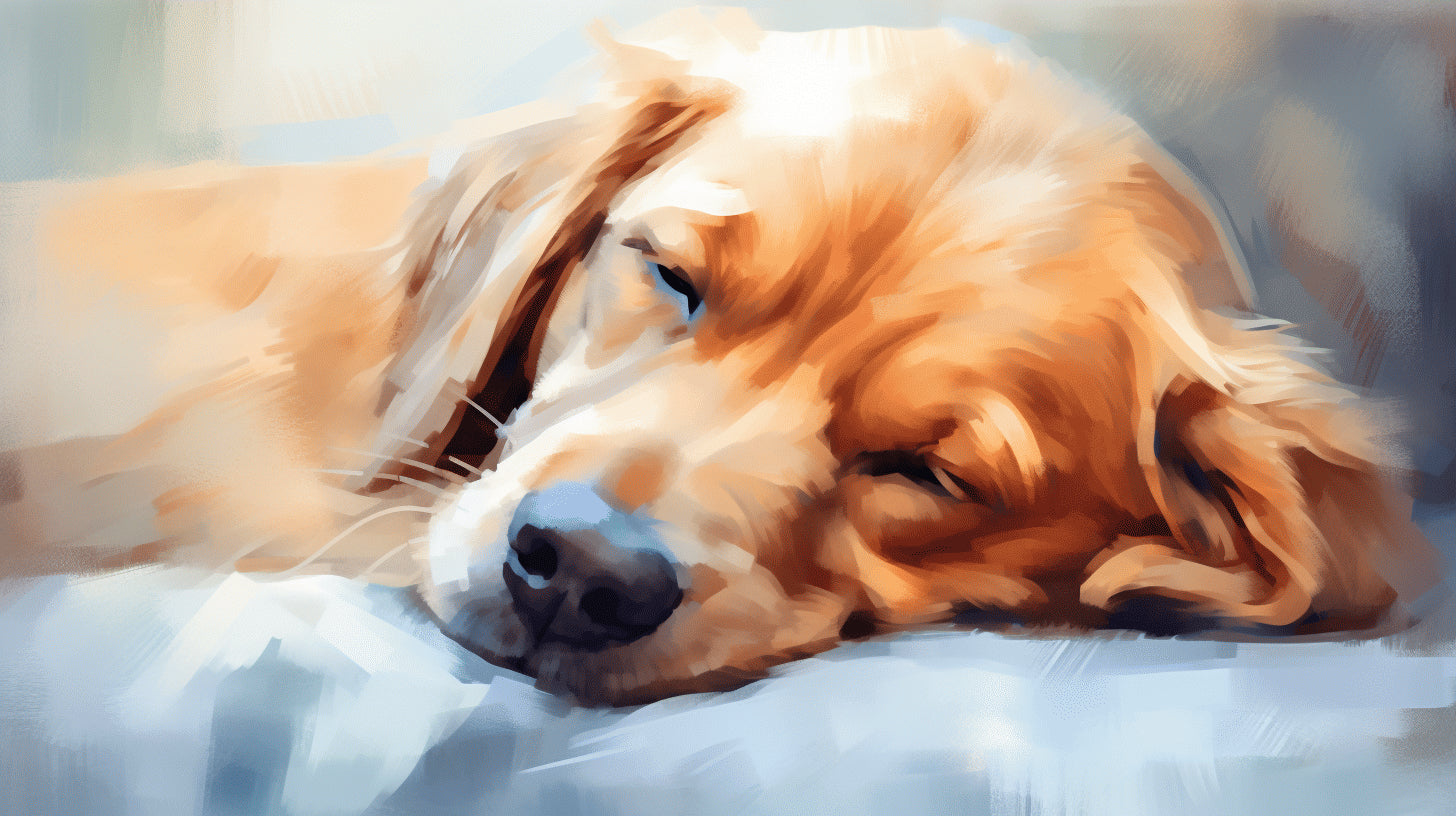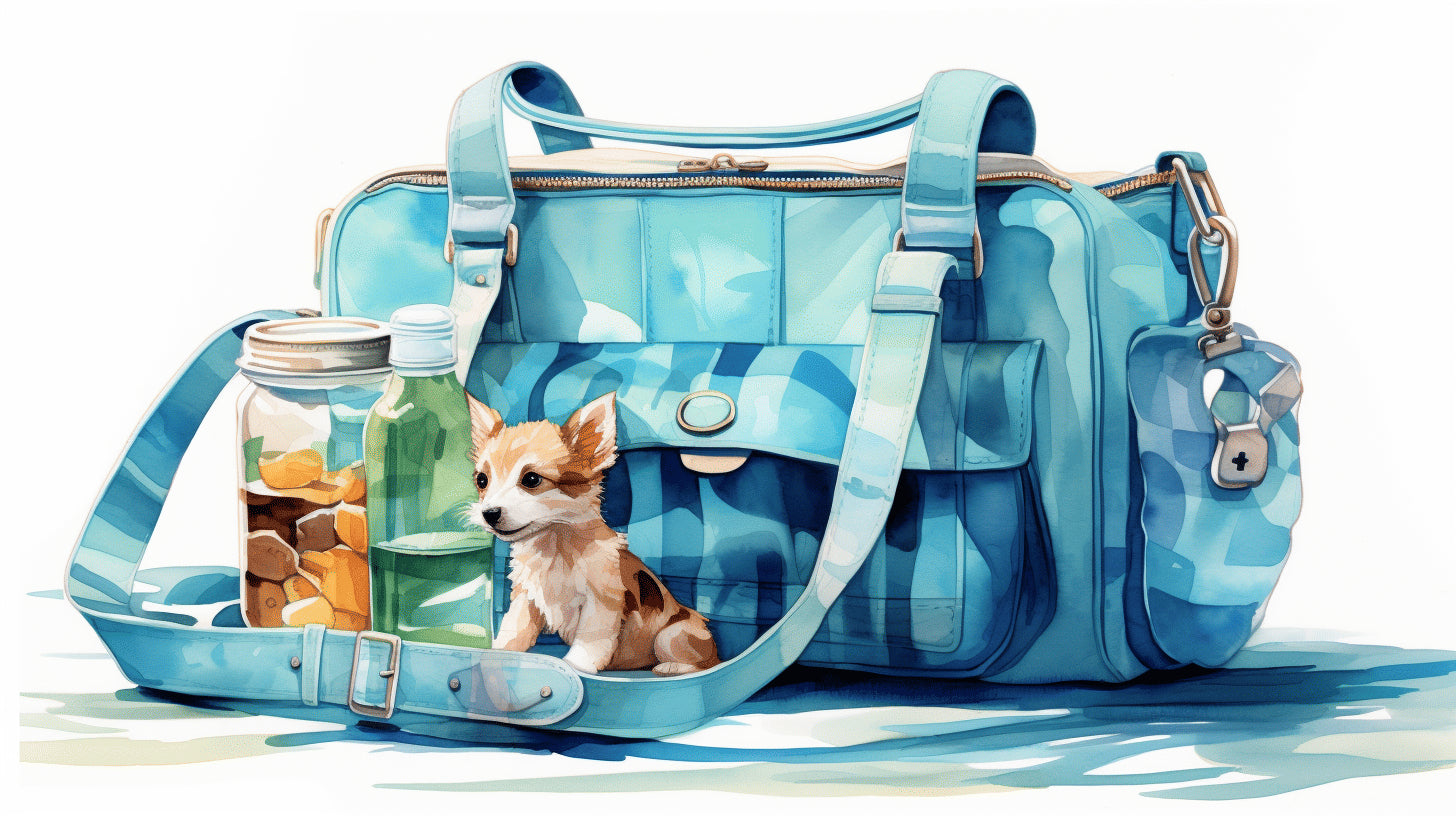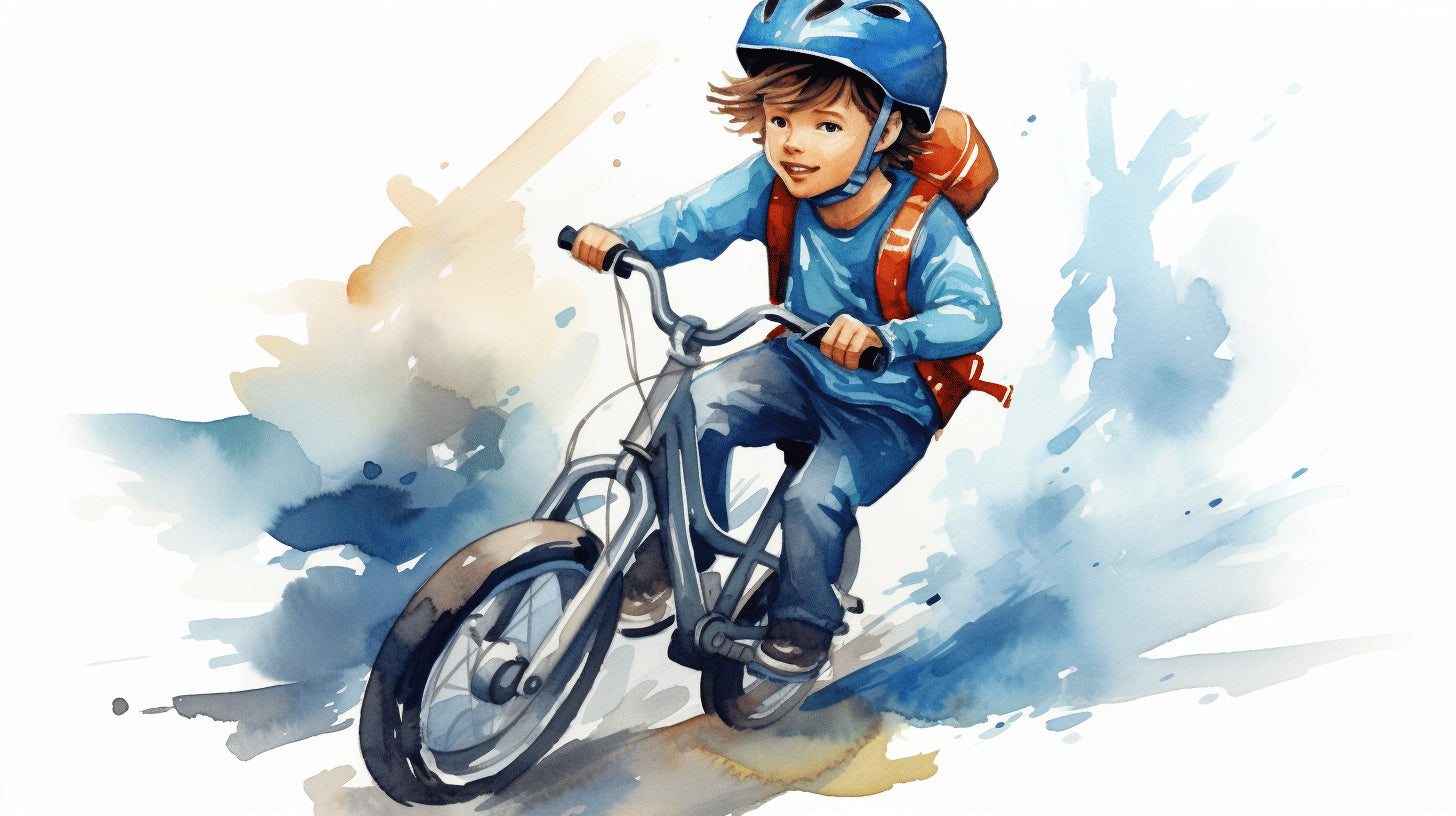Even the calmest pet-owners can attest that the balance of peace in their life got mildly (or significantly) disrupted when their fur friend started pacing around with a worried look in their eyes. Dogs, despite their reputation as man's best friend and providers of unconditional loyalty, suffer from anxiety much like humans do. The wagging tail that greets you at the door might be concealing an underlay of stress and fear. But there's hope on the horizon!
This fascinating journey into the world of dog anxiety will equip you with a comprehensive understanding of this distressing condition. We'll delve into the increasing prevalence of canine anxiety, the signs your pooch might be showing, and the profound effects this discomfort can have on their human companions.
More excitingly, we'll touch on traditional and innovative techniques for mitigating dog anxiety, from regular exercise and mental stimulation to the revolutionary FRIDA protocol and Doga, a unique combination of yoga and pet therapy. This guide seeks to help dedicated pet parents like you better understand and ease their furry companions' inner turmoil, cementing that special bond between humans and their four-legged friends. So sit back, relax, and prepare to accompany us on an insightful exploration into the heart of canine anxiety and the power of relaxation.
Anxiety in Dogs: An Overview
All pet owners know there's a unique bond that forms between humans and their four-legged companions. This bond is precious, indeed, yet it can come with challenges, one of which is witnessing your beloved pet suffering from anxiety. Dog anxiety is a growing concern that can't be overlooked. In a surprising revelation, anxiety caused by other cats or dogs jumped significantly— from just 16.5% in 2020 to 43.52% in 2022. This alarming rise underscores the necessity of understanding anxiety in dogs at a much deeper level.
Increase in Dog Anxiety
Over the years, there has been a notable increase in reported cases of dog anxiety. Far from being a minor nuisance, anxiety in dogs is starting to reveal itself as a prevalent issue. A predominant aspect is canine separation anxiety, with a staggering 47.38% of dog owners observing anxious behaviors due to separation. This represents not just a double or a triple increase, but a whopping 760% escalation! Why such a jump, you might wonder?
It seems the issue lies in far more than mere numbers. The modern lifestyle, with its long workdays and complicated schedules, is often stressful for dogs, leading to a surge in anxiety. So, pet parents must equip themselves with essential information and tools to help their furry friends, ensuring they're comfortable and stress-free.
Understanding Anxiety Behaviors in Dogs
Just like humans, each dog responds differently to stress and anxiety. The key is to recognize these behaviours before they spiral out of control. Some common anxiety signs in dogs to watch out for include:
- Excessive barking or howling
- Pacing or restlessness
- Destructive behaviour
- Aggression
Knowledge is power. So, understanding these behaviours can be a powerful tool in managing pet anxiety and creating healthier, happier surroundings for your dogs. However, recognition is just the first step. The next would be to find the right products that would help mitigate this anxiety. Our page highlights some of the Best Products for Dog Anxiety that you might find helpful.
The Impact of Pet Ownership on Human Mental Health
There's more to pet ownership than meets the eye. Anecdotal claims and scientific studies alike highlight the positive effects pets can have on mental health. It's no wonder then that 74% of pet owners believe their mental health improved after getting a pet. Yet, in the very pursuit of these benefits, it's crucial to remember the mental wellbeing of the pet itself. After all, a relaxed and content pet adds to the tranquil atmosphere of any home.
Watching your dog suffer from anxiety can be heart-wrenching. However, understanding can lead to support, and together, we can improve the lives of our precious pooches, leading to happier owners and even happier pets!
Techniques for Managing Dog Anxiety
Understanding and managing your dog's anxiety can feel like a daunting task. However, by using a range of techniques, you can help your pet navigate their stress and live a happier, more fulfilled life. From physical exercise to cognitive training, and even natural supplements and medical interventions – there's much to consider in this comprehensive toolbox for dog anxiety relief. Settle into this insightful journey towards a calm and serene life for your furry companion, guided by our in-depth Guide to Relieving Dog Anxiety.
Exercise and Mental Stimulation
Just as with humans, exercise can have a significant impact on a dog's mood. Jog around the neighborhood or play fetch in the yard – these activities not only strengthen your bond but also produce beneficial endorphins that can alleviate stress in dogs. Pair the physical activity with mental stimulation: try puzzle games that challenge your pet to think and solve problems. This combination can work wonders in managing dog anxiety.
The Role of Deep Breathing and Relaxation Response
Deep breathing exercises might sound unusual for a pet, but these techniques can activate the relaxation response in dogs. Just pepper in some belly rubs, and your pet might just strike an adorable "yoga pose"!
Behavior Modification and Reward-Based Training
A vet or a pet behaviorist can help pinpoint the causes of your dog's anxiety. Based on their insights, behavior modification training paired with rewards can be an effective anxiety management technique. Include loads of positive reinforcement in the form of treats or praises when your furry friend shows behavior progress.
Use of Calming Supplements
Natural supplements can be an effective way of relieving dog anxiety. Ingredients like chamomile, pet-friendly CBD oils, and melatonin may help to lower a dog's heart rate, promoting relaxation. Always consult your vet to find the best supplement for your pet.
Importance of Touch and Cuddling
Never underestimate the power of a good cuddle. Petting or even laying next to your dog can lower both your stress levels. The simple act of stroking your furry friend's fur can cause a reduction in the release of the stress hormone cortisol.
Identifying Triggers and Implementing Relaxation Techniques
Understanding what triggers anxiety in your pet can enable you to create a more conducive environment for them. This might involve removing certain stressors or, if not possible, teaching your dog relaxation techniques to cope with those stress triggers.
The Use of Antidepressant Medication
At times, medication may be the most effective way to manage severe cases of dog anxiety. Antidepressants, recommended by a veterinarian, can help reduce a dog's anxiety. It's essential to bear in mind, however, that medication should always be the last resort and administered under professional supervision.
As you can see, managing dog anxiety depends on a comprehensive approach and continuous care. It's all part of the journey of owning and loving a furry, four-legged friend. Remember – you're not alone on this journey. Our Guide to Relieving Dog Anxiety is always here to help you navigate these waters.
Novel Methods to Combat Dog Anxiety
Your beloved dog may demonstrate signs of anxiety for numerous reasons. This could range from fear of loud noises, physical discomfort, to separation distress. Fortunately, dog anxiety mitigation techniques have evolved beyond mere medication, drawing from diverse fields such as yoga, diet, and apparel design. This article will spotlight five novel approaches to manage dog anxiety.
The FRIDA Protocol
Firstly, we examine the revolutionary FRIDA Protocol, the brainchild of dog trainers Nadine Hehli and Simone Fasel. Named after charming Frida, a dog plagued by intense fear of humans, this protocol propounds a non-aggressive, reward-based approach to assuage canine anxiety. The core principle revolves around establishing trust and fostering an environment where your furry friend feels safe. It elegantly imbibes the gradual desensitization technique, accustoming dogs to anxiety-inducing situations in a controlled manner.
ThunderShirt - A Comfort Product
Transmuting the reassuring feeling of a tight-hug into a design principle, the ThunderShirt vest emerged. This simplistic yet ingenious product exerts gentle pressure on the dog's chest, analogous to swaddling an infant. The subtle squeeze stimulates the release of calming hormones in dogs, helping allay anxiety-related restlessness or hyperactivity.
Doga (Dog Yoga)
Humans have acknowledged the tranquility-infusing powers of yoga for centuries. Now, our four-legged buddies can join in the Zen journey too, through Doga, an innovative twist on the traditional yoga form. This practice helps dogs develop a sense of relaxation and emotional stability. Plus, the increased quality time strengthens the human-dog bond, reinforcing feelings of security in your pet.
Food Puzzles and New Toys
Dogs yearn for mental stimulation, and presenting them with an absorbing task can effectively divert their anxiety onto a positive conduit. Swapping old toys with novel ones, especially food puzzles, will keep your pooch engrossed, challenging their grey matter, thereby reducing stress.
Wellness Calm Support Chews
Lastly, canine dietary supplements like Wellness Calm Support Chews can provide a natural, pharmaceutical-free solution to anxiety. These mood-enhancing goodies come equipped with antioxidants and Omega-3 fatty acids that quell anxiety symptoms, infusing a sense of calm. By including these into your dog's daily routine, one can observe evident improvements in their overall mood and well-being.
Avoiding anxiety in dogs usually necessitates a blend of techniques tailored to your pet's specific needs. As part of these techniques, why not take a look at Empowered by Ashley's LivelyMat. It's a fantastic and fun product to add to your dog's calming routine.
While it's wonderful to have such an abundance of innovative anxiety combat methods for our dogs, remember each dog is unique. Always, consult with a pet behaviourist or a veterinarian to figure out the best solution for your furry friend. Because we know a happy dog makes a happy home!
Conclusion
In navigating through the challenges of dog anxiety, we've discovered that there is an abundance of techniques and strategies available to pet owners. It's important to remember that not all methods will be effective for all dogs—it's about finding what works best for your furry friend. This journey towards anxiety alleviation, as we've uncovered, can be forged with the aid of professional consultancy, natural remedies, stress-relieving products, and a generous dash of patience.
Empowered by Ashley remains steadfast in their commitment to the well-being of pets, notably through their innovative solutions for easing dog anxiety. This emphasizes the brand’s commitment to making a profound difference in enhancing pet's lives and subsequently, enriching the lives of pet owners.
It's crucial to remember that while dealing with dog anxiety can be arduous, the rewards of a relaxed, happy pet make the journey worthwhile. With patience, understanding, and the right resources, we can certainly empower our pets to overcome their fears and experience life to its fullest. So let's continue to strive towards creating a safe, anxiety-free environment that meets the needs of our beloved pets, echoing Empowered by Ashley's mission. For more information on their offerings, do visit their website for a deep dive into their range of pet safety and anxiety solutions. Remember, a happier pet invariably translates to a happier you.
Frequently Asked Questions
-
What are some common signs of anxiety in dogs?
Common signs of anxiety in dogs include excessive barking, panting, pacing, trembling, destructive behavior, loss of appetite, restlessness, and aggression.
-
How can relaxation techniques help ease dog anxiety?
Relaxation techniques such as deep breathing exercises, massage, aromatherapy, and calming music can help calm a dog's nervous system, reduce anxiety, and promote relaxation.
-
Are there any natural remedies or supplements that can help with dog anxiety?
Yes, there are natural remedies and supplements available that can help ease dog anxiety. Some examples include CBD oil, chamomile, valerian root, and lavender. It's important to consult with a veterinarian before using any supplements.
-
Can training and socialization help with dog anxiety?
Yes, proper training and socialization can help reduce dog anxiety. Training can help build confidence, establish routines, and teach dogs how to cope with stressful situations. Socialization exposes dogs to various experiences and helps them become more comfortable and less anxious.
-
When should I seek professional help for my dog's anxiety?
If your dog's anxiety is severe, persistent, or interfering with their daily life, it is advisable to seek professional help from a veterinarian or a professional dog trainer or behaviorist. They can provide a proper diagnosis and create a tailored treatment plan.
















Leave a comment
This site is protected by hCaptcha and the hCaptcha Privacy Policy and Terms of Service apply.